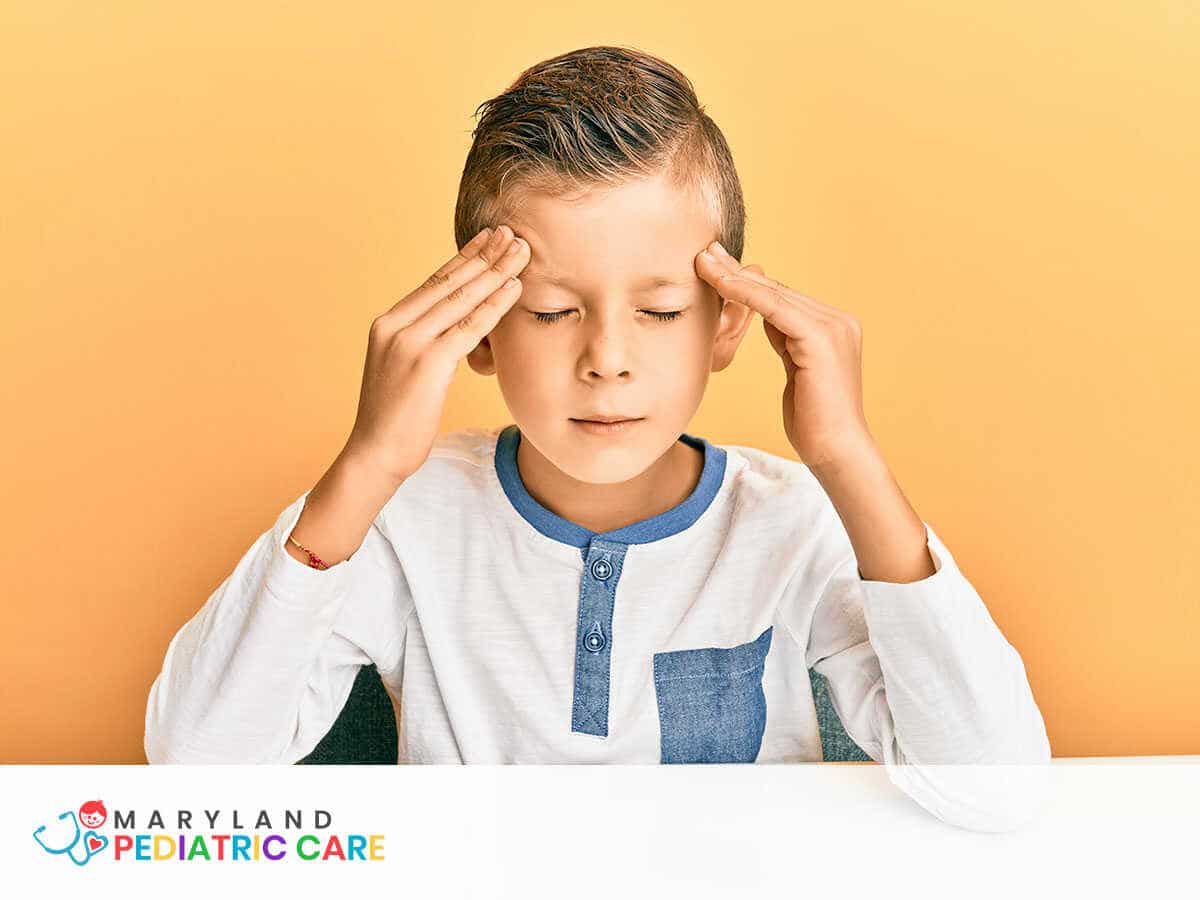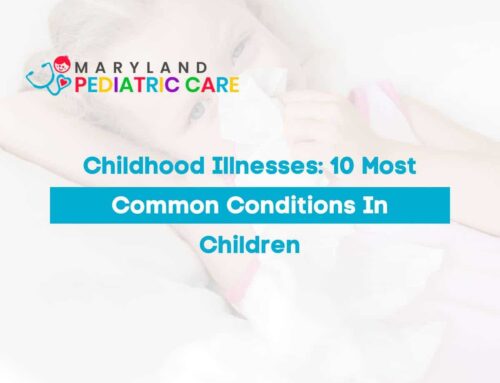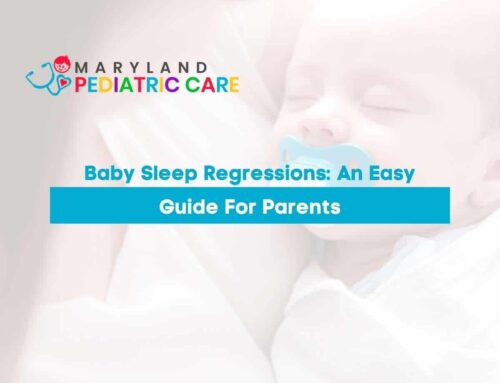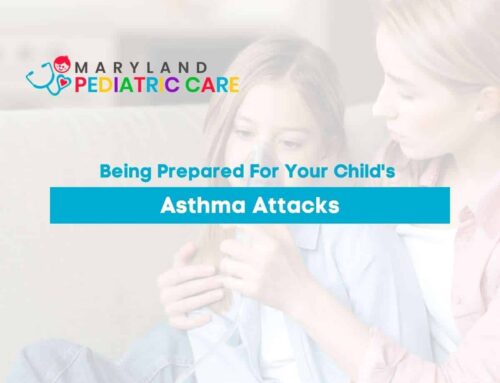Childcare 101: What Are The Concussion Symptoms In Children & Babies?
Children Concussion: The Symptoms & How To Treat It
When you think of a concussion, you likely think about football games or other organized sports. While these are common places to get a concussion, it’s an injury that can happen at any age and affects both girls and boys. For this reason, it’s important for parents to be able to recognize the signs and symptoms of a concussion, how to treat a concussion, and when to take your child to their Maryland pediatric clinic or emergency room.

What Is a Concussion?
A concussion is a mild traumatic brain injury that is caused by trauma to the head, such a fall, car accident, or sports injury. This type of injury is concerning because it causes the brain to have temporary cognitive difficulties and can occur with a loss of consciousness.
In young children, concussions can be especially problematic because a baby or toddler cannot describe how they are feeling. This means parents will need to watch carefully for any symptoms of a concussion. Even more confusing is the fact that symptoms of a concussion don’t always occur immediately after a fall or accident; they may not start until hours or days later.
Concussion symptoms are generally the same for children and adults of all age. But when it comes to babies and toddlers who cannot tell you what they are feeling, you may need to think differently about how they can be affected by the concussion and what those symptoms may look like. If you’re not sure, schedule an appointment with your child’s Clarksburg pediatrician.
Concussion Signs In Babies
For an infant or baby, signs of a concussion might include:
- Crying when you move or turn the baby’s head
- Irritability
- A sudden change in baby’s sleeping habits, such as sleeping much more or much less than normal
- Unexplained vomiting
- A bump or bruise on the head
- Concussion Signs In Toddlers
Older toddlers may be able to tell you that their head hurts or may be a bit more vocal about their symptoms, which can include:
- Headache
- Nausea or vomiting
- Behavior changes
- Sudden change in sleep habits, either much more or less
- Excessive crying for no apparent reason
- Loss of interest in playing, eating, or their favorite activities
Concussion Signs In Children Aged 2+
Children may demonstrate more behavior changes and can more easily communicate symptoms such as the following:
- Dizziness or balance problems
- Double or blurry vision
- Sensitivity to light and noise
- Zoning out or daydreaming
- Difficulty concentrating and remembering recent events, confusion
- Mood changes – such as irritability, anxiety, sadness, or nervousness
- Drowsiness, difficulty sleeping, or other change in sleep patterns
When To Call a Maryland Pediatrician
Parents are naturally concerned and upset when their child falls on his head or gets injured, but how do you know when to take them to the doctor or emergency room?
Watch your child carefully for the symptoms listed above. If your child is awake, active, alert, and seems to be acting normally, he is likely just fine. If you’re concerned, schedule an appointment with Gaithersburg pediatric care. It’s unlikely that a child will need to be rushed to the ER after a small bump with no symptoms.
If your child is demonstrating signs that she may have a concussion, get medical attention right away. This is especially important if your child is:
- Vomiting
- Lost consciousness for more than 1-2 minutes
- Is difficult to awaken
- Has a seizure
- Your child’s pupils are dilated or asymmetrical after the injury
Many parents want to keep their child awake after a head injury, but it’s okay to let your child take a nap if he wants to. Monitor your child’s behavior and complain after she wakes.
Concussion Treatment
The primary treatment for concussions is rest and sleep. The brain needs time and rest in order to heal. This includes a break from both physical and mental activity. Even though it can be challenging, your child should avoid using screens during their recovery time, including the TV, tablets, and phones, because electronic devices overstimulate the brain and slow down healing. Since sleep is critical for healing, encourage quiet times, naps, and early bedtimes. A complete recovery may take weeks, months, or even a year, depending on the severity. It’s a good idea to check in with Maryland pediatric care periodically to monitor your child’s progress.
Visit a Top Rated Pediatrician In Maryland
Maryland Pediatric Care is your trusted pediatrician, from before your baby is born until your child heads to college. We build partnerships with our families to provide your child with the best level of care. It’s our goal to provide personalized care in a compassionate and safe environment. To schedule your child’s appointment, contact us today.

Maryland Pediatric Care
19525 Doctors Drive,
Germantown, MD 20874
Phone: 301-424-2400
Email: [email protected]
Mon, Tue, Thu, Fri: 8:00am – 5:00pm
Wednesday: 8:00am – 1:00pm
Every second Saturday of month
(9:00am – 11:30Am)





